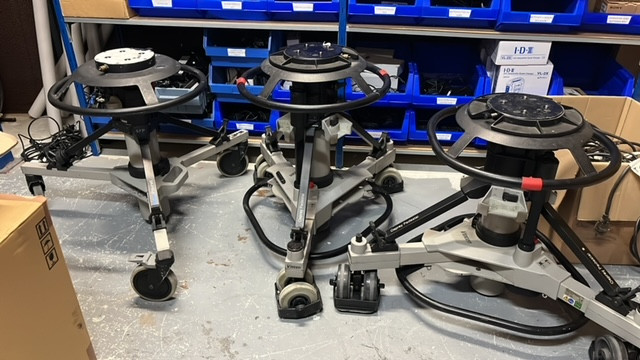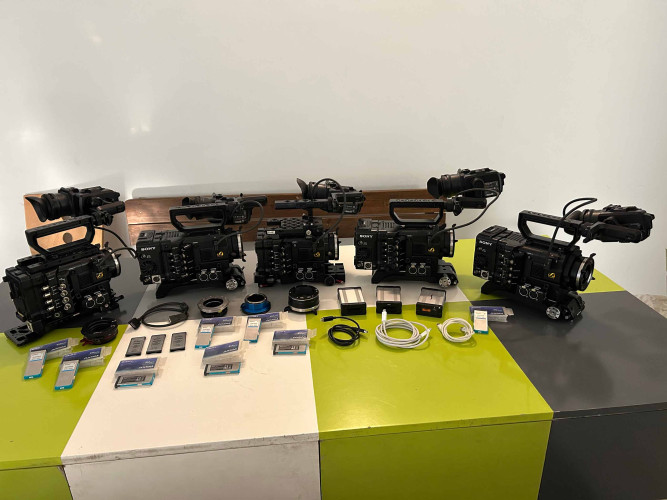by Peter Savage Issue 97 - January 2015
Every year, in January, I like to look back to see if I can find a small gem of information, gleaned during the past year of my 30 years in finance, that I can attempt to pass on, sometimes poorly, to our newest members of staff. Today I was asked by one of my team what was the best advice I had ever been given.
I sat down and thought for a moment then, to her surprise, said \'the art of listening\'. It was early in my working life, when I was a very wet behind the ears sales rep in the car phone industry that I sat down with the guy who I thought was the best at this job. He always achieved the best numbers, had the most loyal clients and, we all thought, the easiest and/or luckiest life. He recounted to me that there are four key things that made him one of the most successful sales people I had ever met, and left me with four defining cornerstones that have served me well in various industries and in different job functions: plan, listen, replay and ...
Have a plan
If you\'ve read my articles regularly, you\'ll remember that I banged on about planning in business in my first article and frequently since. Before any pitch, any business meeting, or any form of engaging with people, and before you set up your business, you have to have done your homework and thought it through to a conclusion. No matter what it looks like in television interviews, during presentations, answering questions apparently off-the-cuff, no-one ever actually wings it. Some might say they that do but anyone who is good has thoroughly prepared the background, and knows the detail and the aim, so they are able to seem spontaneous.
Like a good football manager, you know you cannot ever forecast exactly how every player will react - or predict when natural skill and flair will change the outcome and make the day - but you can always research the strengths and weaknesses of your team and the other side (the companies with which you hope to engage) and plan how to persuade them to work with you.
Listen to find out what the other side wants
Then listening is the route to making it happen. Whether one is in a pitch for a new programme, a meeting with a new client, or even with your FD or MD, the first thing to do is find out what he or she wants. Open a dialogue - ask open questions (the how, what, when, where, why questions that elicit more than yes/no answers) that make them talk about their business, where they think it is going, and their aspirations. Not only will this help the client feel reassured that you are truly interested in their business, but it also means you can work out where your product will fit into the client\'s portfolio. Natural objections can be countered. For instance, if price is the
only measurement that the decision-maker values then it is pointless emphasising value-add. And, vice versa: if the client\'s business is all about service and strong customer relationships, don\'t push a price-led offering.
Replay
Once you have listened, you replay - not with yawn-inducing repetition but with sharp and focussed recapping for clarity. You listened, you engaged, you talked about a strategy, then you reaffirmed that strategy by replaying, in the meeting and when following up, what has been agreed. This sounds as though I am teaching you to suck the proverbial eggs but I\'m not. I know from painful experience of being at meetings when strategies were agreed and I\'ve left with a light heart and what seems like a firm plan only, to my utter dismay, to receive a follow up email that says something completely different. If you make notes and, within a reasonably short time, reaffirm the intention, your client will consider you not only courteous but also efficient and accurate. That\'s a good start.
... and go ...
If you are wondering what this has to do with you as an editor, or a producer of programmes, or as a marketing person for a broadcast company ... this advice isn\'t only about great selling techniques or how to make a quick buck. It\'s also about how to conduct a proper and precise
business meeting.
You plan, you listen, you replay - those are the three key cornerstones for any meeting. The fourth is a strange one but, when you are getting slightly long in the tooth and have seen many meetings or decisions unravel, it is crucial. It is... go. When you have agreed something, and even if it has only taken a few minutes, then get the hell out of there. The number of people who think it can\'t happen that swiftly or easily and start talking about random services that confuse,
or who fail to understand that the meeting has effectively closed, and who then put up the backs of the other side is unbelievable. Once you have achieved what you set out to achieve ... go.
If you would like to know more about good business practice then email me at peter.savage@azule.co.uk or see our website to read the other articles in this series: www.azule.co.uk




































